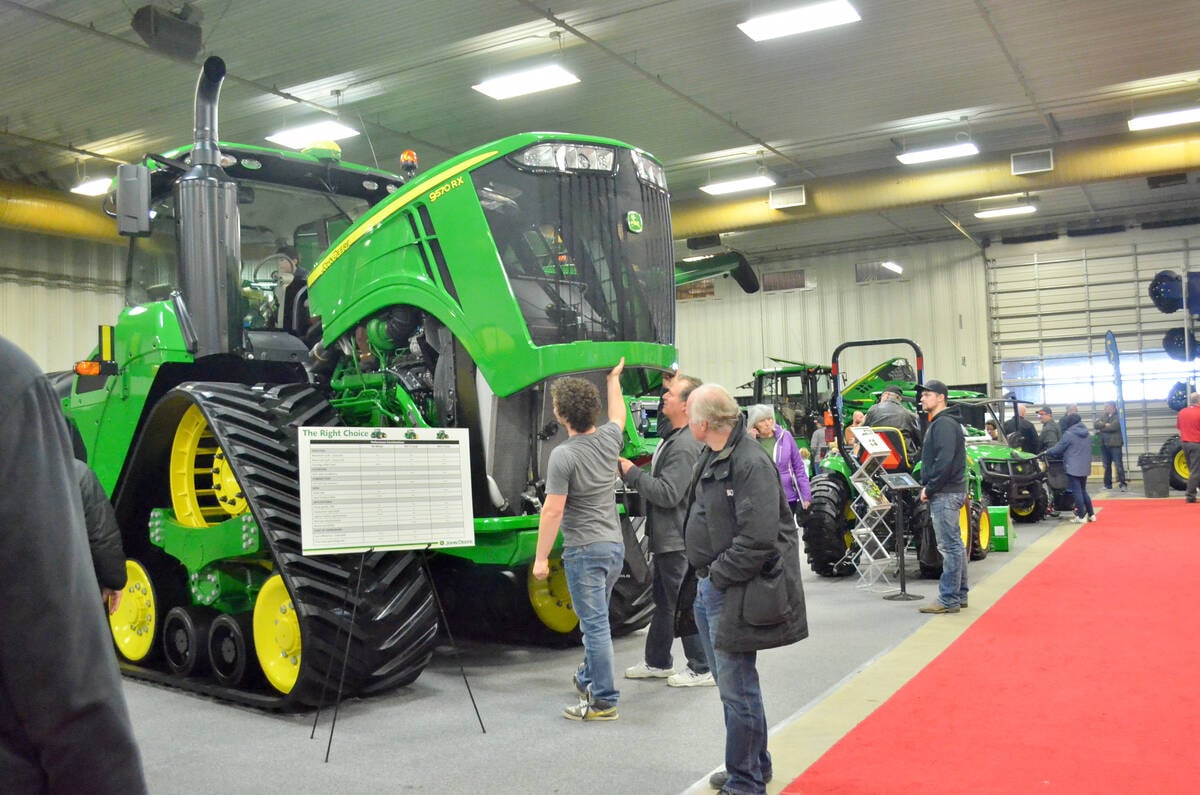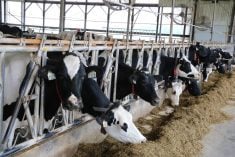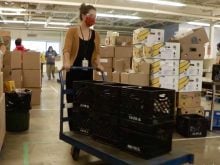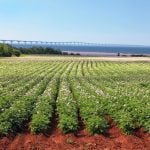 Manitoba processing potato growers will be paid the same prices for their 2013 crop as they were for 2012 but they have agreed to cut acres by about 10 per cent, Gary Sloik, manager of the Keystone Potato Producers Association, said in an interview May 10.
Manitoba processing potato growers will be paid the same prices for their 2013 crop as they were for 2012 but they have agreed to cut acres by about 10 per cent, Gary Sloik, manager of the Keystone Potato Producers Association, said in an interview May 10.
“The new contract doesn’t cover our cost increases and that’s something that concerns me,” he said.
Read Also

The sneak peek of Manitoba Ag Days 2026
Canada’s largest indoor farm show, Manitoba Ag Days, returns to Brandon’s Keystone Centre Jan. 20-22, 2026. Here’s what to expect this year.
Last year Manitoba farmers planted about 76,000 acres of processing potatoes, which are made into french fries. A 10 per cent cut translates into 6,000 to 7,000 fewer acres for 2013. But farmers might not cut the full 10 per cent because delayed planting could reduce yields, Sloik said. Farmers want to make sure they can fill their contracts.
Moreover, many farmers have already picked up their seed.
“It’s extremely late to be reducing acres,” he said. “Producers have had to make plans.
“In my opinion this should’ve been known a couple of months ago so people could make proper plans.”
Simplot, which has a potato-processing plant in Portage la Prairie, did give farmers earlier notice, Sloik said, but McCain Foods, which has plants in Portage and Carberry, didn’t finalize its acreage with growers until last week.
May 7 growers also voted to accept the same prices for potatoes from McCain as last year. McCain had sought a five per cent price cut, while Simplot had agreed earlier to a 2.5 per cent increase. Because growers agreed to keep the price the same as last year for McCain, Simplot growers will receive the same prices as last year too.
Growers in New Brunswick, Maine and Prince Edward Island will also get last year’s price, while farmers in Idaho, Washington and North Dakota will be paid more, Sloik said.
Some Manitoba potato growers also supply Cavendish Farms, a processing plant in Jamestown, North Dakota.
What farmers ultimately receive depends on the quality they deliver. Prices are discounted for lower-quality potatoes, while bonuses are paid for higher-quality spuds.
“We’re hoping this year’s quality will return them (farmers) what they were supposed to get last year,” Sloik said.
While some farmers envy the apparent prosperity of potato growers, appearance can be deceiving, Sloik said. Potato growers have a lot of equipment and storage facilities, but they’ve also got a lot of capital tied up, and like all farmers, face huge risks from bad weather and pests.
“It’s not for the faint of heart,” he said.
About a third of the potato farms have changed hands since 2006, Sloik said. Some farmers were of retirement age, while others were dryland operators in areas where irrigation wasn’t practical.
Some next-generation farmers didn’t want to continue in potatoes despite having irrigation, because of the strain and risk, he said.
“You get a 1,000-acre potato farm and you take that capital and labour, it could run a fair-size grain operation.”
The demand for french fries has also stagnated and the relatively strong Canadian dollar also hurts Manitoba growers.
Manitoba is still Canada’s second-biggest potato producer behind P.E.I. Manitoba farmers are also getting more productive, averaging annual yield increases of two per cent, or about 800 hwt. — double the annual increase in the United States, Sloik said.
However, Manitoba yields are half of those of Washington, which enjoys a much longer growing season.
“It concerns me that we could price ourselves out of the market,” Sloik said. “We have to compete on North American pricing. Our minimum wages are higher (here)…
“In our province we’ve had worker’s compensation, workplace health and safety brought in that our growers have to comply with. There’s also on-farm food safety, sustainability surveys, that are costs but there are no returns for these things.”
Manitoba growers use fewer inputs and therefore are “greener” thanks to cold winters and crop rotations, but it’s price that drives production, Sloik said.
















